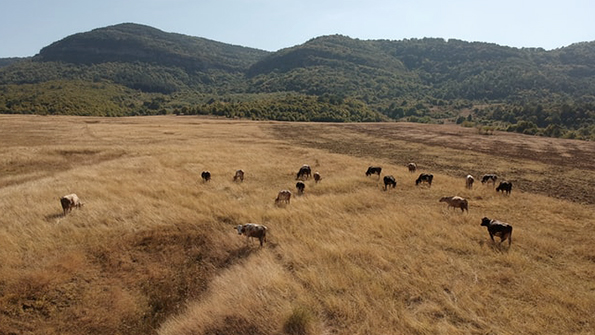
Social innovation in rural areas is a strategic priority.
Rural social innovation can be clearly identified among the EU’s priorities and appropriately addressed in the context of funding under the Rural Development Program. Social entrepreneurship is also addressed in the EU Framework Programs – the Horizon 2020 Research and Innovation Program and the Erasmus+ Education Program, where two main aspects of social entrepreneurship are prioritized – that is, youth employment and lifelong learning. Activities related to the analysis and development of strategies to tackle the relevant social problem, as well as improving the vocational training of young people, elderly groups or disadvantaged people, are funded.
We can point out a number of factors that support innovation in rural areas:
- Diversification of local economies;
- The continuing need for technological advances in food production;
- The attractiveness of rural areas for free entrepreneurs – a higher standard of living and environmental quality;
- Technological advances and market trends encouraging small businesses to locate in rural areas;
- Improving the infrastructure and accessibility of rural areas;
- Innovation in the provision of services stemming from the need to provide quality services to the population away from large urban centers;
- Growth in the eco-production and eco-innovation sector.
Nonetheless, there is a number of factors impeding such innovations to happen. Ananalysis of the state of the art in Bulgaria reported the following challenges:
- The lack of quality broadband infrastructure;
- Relatively weak economic base, few businesses, lack of clustering, which impedes knowledge transfer, networking and competition;
- Leaving young and highly educated people, which is reflected in the lack of highly qualified and knowledge-based staff for agriculture and industry.
In addition to these trends, which favor or impede social entrepreneurship and innovation, social farming has its own specificity. Social agriculture is one of the most important examples of social innovation in rural areas. It could be seen as care farming, farm education, agricultural day care and other. Key to these services is the relationship between farms and civilians.
Despite the existence of separate initiatives, mainly related to the implementation of projects funded under different programs, the social focus of agriculture is still difficult to attract.
The reasons for the low prevalence of social farming are many:
- Lack of awareness of institutions, organizations and businesses regarding the importance and potential of social agriculture;
- Lack of adequate state policy focused on stimulating and promoting this type of activity;
- Lack of established networks and cooperatives in rural areas;
- Lack of developed training materials for students and farmers;
- Underdeveloped rural structures, promoting the implementation of alternative employment models and the use of multifunctional agriculture as a source of income, etc.
 How to overcome these challenges? For example, Bulgaria should have a Strategic Plan for Agricultural Development by April 2020. This challenge is also on the agenda of all EU Member States. An exceptional test for the administration will be the drafting of the Strategic Plan. Only ten days ago, the first analysis of the state of agriculture and the food industry was presented. It is expected that by the end of the year, the other two will be ready – socio-economic and environmental analysis, which will serve as a basis for the development of the Strategic Plan.
How to overcome these challenges? For example, Bulgaria should have a Strategic Plan for Agricultural Development by April 2020. This challenge is also on the agenda of all EU Member States. An exceptional test for the administration will be the drafting of the Strategic Plan. Only ten days ago, the first analysis of the state of agriculture and the food industry was presented. It is expected that by the end of the year, the other two will be ready – socio-economic and environmental analysis, which will serve as a basis for the development of the Strategic Plan.
More farms in the country need to learn how to combine their agricultural production and environment with services to society: care farming, farm education, farm shops/shortening food supply chains, agricultural day care, agricultural nature management and agro tourism.


